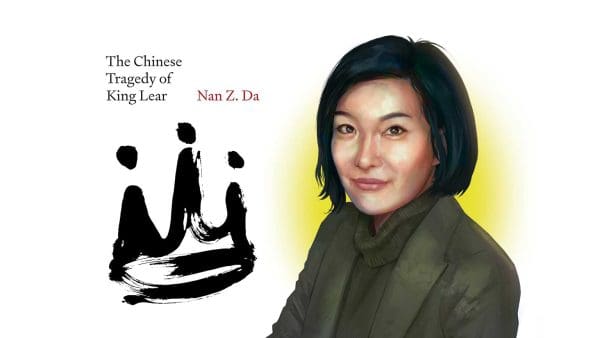
Illustration: Robert Neubecker
When Melissa Libertus was in high school, she loved math—and was so good at it that she often tutored her classmates. When she wasn’t helping others sort out math puzzles, she puzzled on why people have such a wide range of math abilities. “I always found it fascinating that some people had such an easy time learning math and others just didn’t understand it and had a hard time grasping even simple concepts,” she said. “I always wondered where this came from.”
Now a postdoctoral fellow in the Department of Psychological and Brain Sciences, Libertus is making inroads toward an answer. In a new study, published in Developmental Science, Libertus and her colleagues find that an intuitive sense of number, known as the approximate number system (ANS), is present in preschoolers and related to their math ability before they get any math training. This may suggest that part of math ability is probably inborn.
The ANS is more commonly known as “number sense”—the ability to approximate about how many items are in a group with a quick glance. In previous research, Johns Hopkins associate professors Lisa Feigenson and Justin Halberda discovered that adolescents with superior number sense also had better math abilities than those whose number sense wasn’t as attuned. However, these findings could have been skewed by the math training these young adults had already received.
To find out whether number sense, and its corresponding math ability, is present before any substantial math education takes place, Libertus, Feigenson, and Halberda tested preschoolers between the ages of 3 and 5. If number sense and math ability matched up in these young children, they reasoned, at least a portion of math ability may be innate.
Working with 200 local preschoolers, the researchers had their study subjects view quick flashes of clusters of blue and yellow dots on a computer screen and estimate which color group contained more dots. The flashes were too quick for the children to count—an ability that many of them lacked anyway—so they had to rely on their intuition.
Libertus and her colleagues also gave each child a standardized test that’s commonly used to measure math aptitude in this age group. The test assessed abilities such as how well they could count items in a group, identify Arabic numerals, and answer simple word problems (for example, “If Joey has two blocks, and gets one more block, how many does he have altogether?”).
Finally, the researchers had each child’s parent check off words on a list that they’d heard their child say—a way to assess general aptitude, to make sure the children who aced the other tests didn’t just have more inherent abilities overall.
The new findings revealed that, just as in adolescents, preschoolers with the best ability to intuit the relative number of dots had the best math ability overall. Importantly, their verbal ability didn’t correlate with these skills, suggesting that math ability develops independently.
Libertus notes that their study just shows a correlation—it doesn’t explain why number sense and math ability are connected. It could be that children with better number sense might learn basic number skills faster, such as counting, and consequently tack on more complex skills at a more accelerated pace. Another idea, Libertus posits, is that children with better number sense are more drawn to math for fun and build skills through games and puzzles.
Regardless, she says, it may be possible to give children some training early on to boost their number sense—an enhancement that could help their future math abilities in countless ways.




